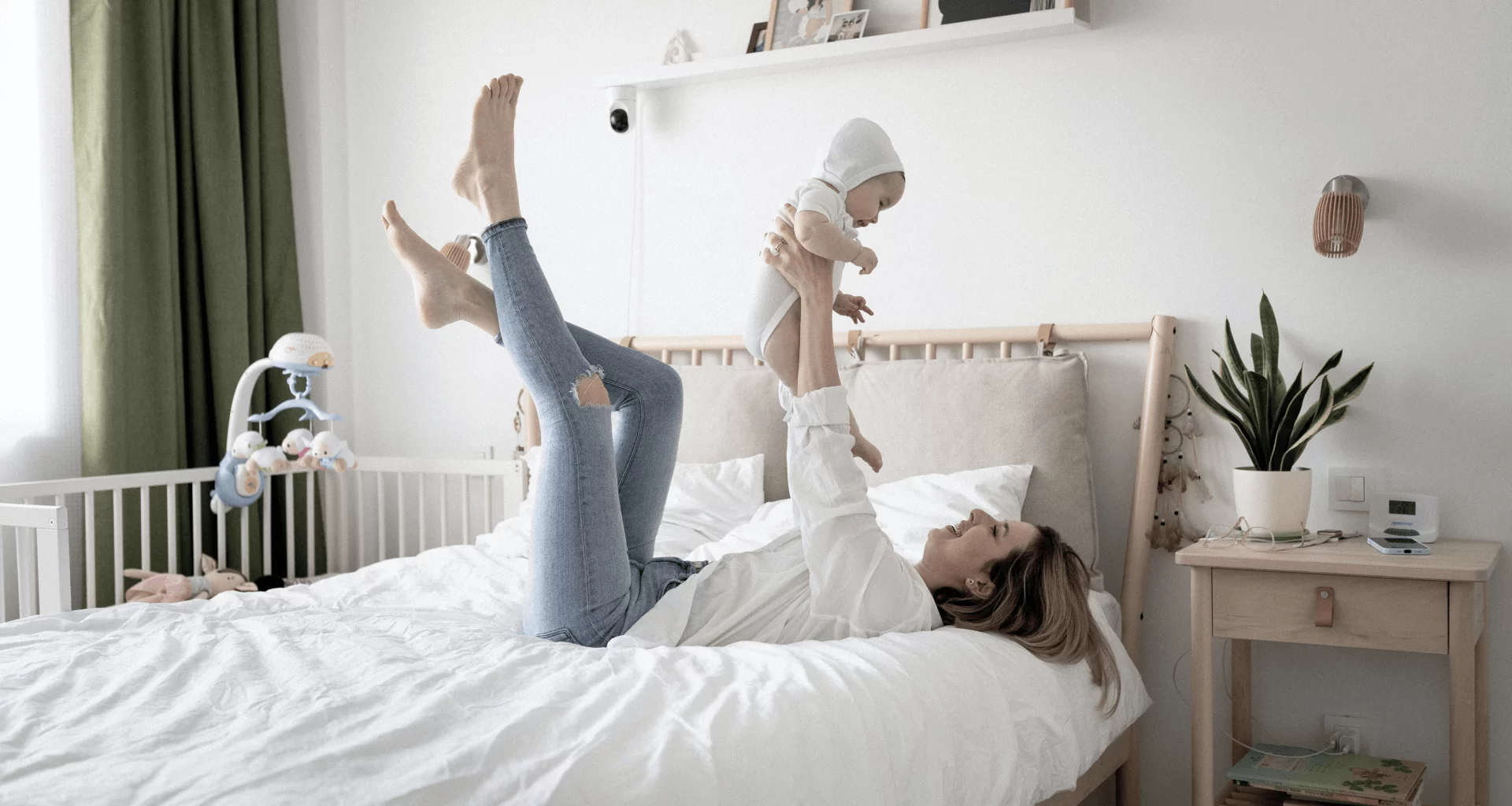Motherhood is often hailed as a time of joy, love, and fulfillment. However, for some new mothers, the reality can be quite different. Postpartum depression, a mood disorder that affects women after childbirth, can cast a shadow over what should be a happy and exciting chapter in their lives. The emotional and physical changes that accompany motherhood can be overwhelming, and navigating the challenges of postpartum depression may seem daunting. But fear not, here is your roadmap to recovery. We will explore the causes, symptoms, and impact of postpartum depression, as well as provide practical strategies and support for overcoming this challenging condition. Let’s embark on this journey together, empowering you with the knowledge and tools you need to regain your joy and well-being as you navigate the path to recovery from postpartum depression.
Table of Contents
- Mindfulness-Based Interventions for Postpartum Depression
- Introduction to Postpartum Depression
- What is Mindfulness-Based Intervention?
- Mindfulness-Based Cognitive Therapy for PPD
- Mindful Self-Compassion for PPD
- Mindfulness-Based Childbirth and Parenting for PPD
- Mindfulness-Based Stress Reduction for PPD
- Mindfulness-Based Interventions for Fathers
- Benefits of MBIs for PPD
- Challenges of MBIs for PPD
- How Exercise Can Help Alleviate Symptoms of Postpartum Depression
- Building a Support System for Managing Postpartum Depression
- The Benefits of Cognitive Behavioral Therapy for Postpartum Depression
- Building Resilience to Cope with Postpartum Depression
- Creative Therapies for Coping with Postpartum Depression
- Nutrition and Lifestyle Changes to Manage Postpartum Depression
- The Link Between Nutrition and PPD
- Essential Nutrients for Managing PPD
- The Role of Exercise in Managing PPD
- The Importance of Sleep for PPD Management
- Managing Stress and Anxiety with Mindfulness and Meditation
- Social Support and Its Impact on PPD
- Avoiding Alcohol and Drug Use
- Mindful Eating and Its Benefits for PPD
- Practical Tips for Implementing Lifestyle Changes
- The Importance of Self-Care in Managing Postpartum Depression
- Coping with Seasonal Affective Disorder (SAD)
- Overcoming Stigma and Seeking Help for Postpartum Depression

Mindfulness-Based Interventions for Postpartum Depression
Postpartum depression (PPD) affects up to 20% of new mothers and can have long-term negative effects on both the mother and child’s physical and emotional well-being. PPD is a form of clinical depression that occurs after childbirth and can last for weeks, months, or even years if left untreated. Fortunately, mindfulness-based interventions (MBIs) have emerged as a promising alternative to traditional treatments for PPD.
Introduction to Postpartum Depression
Postpartum depression is a mental health disorder that can occur after childbirth. It can cause feelings of sadness, anxiety, and exhaustion, and can have negative effects on the mother-child relationship.
What is Mindfulness-Based Intervention?
Mindfulness-based interventions (MBIs) are a type of psychotherapy that involves cultivating awareness and acceptance of present-moment experiences, thoughts, and emotions. MBIs have been shown to be effective in treating depression, anxiety, and stress-related disorders.
Mindfulness-Based Cognitive Therapy for PPD
Mindfulness-Based Cognitive Therapy (MBCT) is a form of MBI that combines mindfulness practices with cognitive therapy techniques. A study found that MBCT was effective in reducing symptoms of PPD, including depression, anxiety, and stress.
Mindful Self-Compassion for PPD
Mindful Self-Compassion (MSC) is another form of MBI that focuses on developing self-compassion and empathy. A study found that MSC was effective in reducing symptoms of PPD, including anxiety, depression, and stress.
Mindfulness-Based Childbirth and Parenting for PPD
Mindfulness-Based Childbirth and Parenting (MBCP) is an MBI that focuses on mindfulness practices during pregnancy, childbirth, and parenting. A study found that MBCP was effective in reducing symptoms of PPD, including depression and anxiety.
Mindfulness-Based Stress Reduction for PPD
Mindfulness-Based Stress Reduction (MBSR) is an MBI that focuses on developing awareness and acceptance of stressful experiences. A study found that MBSR was effective in reducing symptoms of PPD, including depression, anxiety, and stress.
Mindfulness-Based Interventions for Fathers
Postpartum depression is not limited to mothers. Fathers can also experience depression after childbirth. A study found that MBCT was effective in reducing symptoms of depression and anxiety in fathers.
Benefits of MBIs for PPD
MBIs have several benefits for PPD, including improving mood, reducing anxiety and stress, and enhancing the mother-child relationship. MBIs can also help mothers develop a greater sense of self-awareness and self-compassion, which can be beneficial for long-term mental health.
Challenges of MBIs for PPD
MBIs can be challenging for new mothers, who may struggle to find time for mindfulness practices. Mothers may also have difficulty focusing on present-moment experiences due to the demands of caring for a newborn. However, with support and guidance, MBIs can be adapted to meet the needs of new mothers.
Mindfulness-based interventions are a promising alternative to traditional treatments for postpartum depression. MBIs have been shown to be effective in reducing symptoms of PPD, improving mood and reducing stress and anxiety. With further research, MBIs could become a standard part of PPD treatment.
How Exercise Can Help Alleviate Symptoms of Postpartum Depression
Postpartum depression is a type of depression that occurs after giving birth. It affects up to 15% of women and can last anywhere from a few weeks to a year or more.
Symptoms can include:
- feelings of sadness or hopelessness
- loss of interest in activities you once enjoyed
- changes in appetite and sleep patterns
- difficulty bonding with your baby
- thoughts of harming yourself or your baby
How Exercise Helps with Postpartum Depression
Exercise is a natural mood booster that can help alleviate symptoms of depression. It has been shown to increase the production of endorphins, which are the body’s natural “feel-good” chemicals. Exercise can also reduce levels of the stress hormone cortisol, which can contribute to feelings of anxiety and depression. Additionally, exercise can help improve sleep, increase energy levels, and boost self-confidence.
Types of Exercise
When it comes to exercise, there are many different types to choose from. Some popular options for postpartum women include:
Walking
Walking is a low-impact exercise that can be done almost anywhere. It can be a great way to get outside, enjoy some fresh air, and clear your mind.
Yoga
Yoga is a gentle form of exercise that can help improve flexibility and strength while also promoting relaxation and mindfulness.
Strength training
Strength training involves using weights or resistance bands to build muscle and improve overall fitness. It can help increase energy levels and boost self-esteem.
Aerobic exercise
Aerobic exercise, such as jogging, swimming, or cycling, can help improve cardiovascular health while also reducing stress and anxiety.
Exercise as a social activity
Aside from providing a sense of achievement, exercise can also serve as a social activity for women experiencing postpartum depression. Joining a fitness class or group can help them meet new people and create a support system outside their homes. This social interaction can provide emotional support and can be an effective way of coping with the symptoms of postpartum depression.
Exercise as a form of self-care
Self-care is an essential aspect of managing postpartum depression, and exercise can be a significant part of it. By setting aside time to focus on themselves, women can take a step towards improving their mental health. Exercise can be a way for women to prioritize themselves, and the benefits of it can help them feel better equipped to handle the responsibilities of motherhood.
Finding the right exercise routine
It’s important for women experiencing postpartum depression to find an exercise routine that works for them. This can include finding an activity they enjoy, working out at a time that suits them, and starting at a pace that feels manageable. It’s also important to talk to a healthcare professional before starting any exercise routine to ensure that it’s safe for them.
Research has shown that exercise can be an effective way to alleviate the symptoms of postpartum depression. A study found that women who participated in an exercise program experienced a significant reduction in their depression scores. The women in the study participated in a twelve-week exercise program that included moderate-intensity aerobic exercise and strength training. The exercise program not only improved the women’s depression scores, but it also improved their quality of life and overall physical health.
Exercise can be a useful tool for women experiencing postpartum depression. It can improve mood, reduce stress, and increase social interaction, making it an effective way to manage the symptoms of postpartum depression. However, it’s essential for women to find an exercise routine that works for them and to talk to a healthcare professional before starting any exercise program. By incorporating exercise into their daily routine, women can take a step towards improving their mental health and overall well-being.
Building a Support System for Managing Postpartum Depression
Understanding the Importance of a Support System
A support system is a group of people who offer emotional, physical, and practical support during difficult times. For women with postpartum depression, a support system can provide a source of comfort, encouragement, and guidance. Support can come from family members, friends, healthcare professionals, or community organizations. Studies have shown that having a supportive network can improve mental health outcomes and reduce the risk of developing chronic depression.
Building Support from Family and Friends
Family and friends can provide a vital source of emotional support for new mothers with postpartum depression. They can offer a listening ear, practical help with household tasks, or take care of the baby to allow the mother to rest or attend therapy sessions. However, it can be challenging to reach out for help, especially if one feels guilty or ashamed about their condition. It’s essential to communicate openly and honestly with loved ones about the challenges one is facing and to ask for help when needed.
Seeking Professional Support
Postpartum depression is a treatable condition, and seeking professional support is crucial for recovery. Healthcare professionals, such as obstetricians, gynecologists, or mental health specialists, can offer guidance, medication, therapy, or referrals to other resources. Postpartum support groups can also be a valuable source of comfort, education, and encouragement, as they provide an opportunity to connect with other women who are going through similar experiences.
Finding Community Support
Community organizations, such as churches, social groups, or charities, can also offer support to women with postpartum depression. These groups may provide a range of services, such as counseling, parenting classes, or childcare. It’s essential to reach out to these organizations and learn about the available resources.
A study found that women who participated in a support group experienced significant improvement in depression symptoms compared to women who did not receive support. Another study found that women who received social support had lower levels of stress and higher levels of well-being than those who did not receive support.
Building a support system is essential for managing postpartum depression. A supportive network can offer emotional, physical, and practical support, which can reduce stress, improve mental health outcomes, and reduce the risk of developing chronic depression. It’s important to reach out to family, friends, healthcare professionals, and community organizations for help and to prioritize self-care strategies to promote well-being.
The Benefits of Cognitive Behavioral Therapy for Postpartum Depression
CBT is a short-term therapy approach that aims to help individuals recognize and change negative thought patterns that can contribute to depression. Research has shown that CBT can be an effective treatment for PPD, providing benefits such as improved mood, reduced anxiety, and an increased ability to cope with stressors.
What is cognitive-behavioral therapy?
Cognitive-behavioral therapy (CBT) is a type of psychotherapy that aims to help individuals identify and change negative thoughts, beliefs, and behaviors that contribute to emotional and behavioral problems. This approach focuses on the present moment and aims to teach individuals to develop coping strategies to deal with current and future problems. CBT is a goal-oriented and structured approach that is typically short-term, with the duration of treatment ranging from 6 to 20 sessions.
How does cognitive-behavioral therapy work for PPD?
CBT for PPD aims to help new mothers identify and challenge negative thoughts and behaviors that contribute to their depression symptoms. CBT can help new mothers recognize the patterns of negative thinking and replace them with more realistic and positive thoughts. The therapist works collaboratively with the new mother to develop a treatment plan tailored to their specific needs.
CBT helps new mothers build coping strategies that allow them to handle stressful situations effectively. Through CBT, new mothers can develop skills to manage anxiety and stress, engage in enjoyable activities, and build relationships with their support system.
What are the benefits of cognitive-behavioral therapy for PPD?
Several studies have shown that CBT is an effective treatment for PPD. The benefits of CBT for PPD include improved mood, reduced anxiety, increased coping skills, and a better ability to manage stress. CBT is also beneficial in improving the relationship between mother and infant, increasing bonding, and improving the overall quality of life.
Cognitive-behavioral therapy vs. other treatments for PPD.
There are several treatment options for PPD, including medication, psychotherapy, and alternative treatments. While each approach has its benefits, CBT has been shown to be effective in reducing symptoms of PPD without the potential side effects of medication. CBT is also a short-term treatment approach that can be completed in a relatively brief period.
Who can benefit from cognitive-behavioral therapy for PPD?
New mothers who experience symptoms of PPD can benefit from CBT. Women who have a history of depression, anxiety, or other mental health disorders may also benefit from CBT Therefore, it is important for healthcare professionals to consider CBT as a viable treatment option for women experiencing postpartum depression.
Postpartum depression can be a challenging and overwhelming experience for new mothers. It is important to seek help and support when dealing with postpartum depression. Cognitive behavioral therapy has been shown to be an effective treatment option for managing postpartum depression. It can help women develop coping strategies, challenge negative thoughts, and improve their overall mental health. By seeking treatment, women can work towards feeling better and enjoying motherhood.
Building Resilience to Cope with Postpartum Depression
Understanding Resilience
Resilience is the ability to cope with adversity and overcome challenges. It involves the ability to adapt to change and bounce back from difficult situations. For new mothers, building resilience can help them cope with the challenges of postpartum depression and improve their overall mental health and well-being.
Identifying Personal Strengths
One of the first steps in building resilience is identifying personal strengths. This involves recognizing the positive qualities and skills that can help new mothers cope with postpartum depression. Examples of personal strengths include self-awareness, a positive attitude, problem-solving skills, and social support.
Developing Coping Skills
Developing coping skills can help new mothers manage the symptoms of postpartum depression. Examples of coping skills include mindfulness, deep breathing exercises, and cognitive-behavioral therapy. These skills can help new mothers manage their emotions, reduce stress, and improve overall well-being.
Establishing Realistic Goals
Setting realistic goals is an important aspect of building resilience. New mothers should establish goals that are achievable and align with their values and priorities. Setting realistic goals can help new mothers feel a sense of accomplishment and improve overall self-esteem.
A study found that building resilience is an effective way to cope with postpartum depression. The study found that mothers who had higher levels of resilience reported lower levels of postpartum depression symptoms. The study also found that social support and coping skills were important factors in building resilience and managing postpartum depression.
Building resilience is an effective way to cope with postpartum depression. New mothers can build resilience by identifying personal strengths, seeking social support, practicing self-care, developing coping skills, setting realistic goals, and seeking professional help. Building resilience can help new mothers manage the symptoms of postpartum depression and improve their overall mental health and well-being.
Creative Therapies for Coping with Postpartum Depression
Art Therapy for Postpartum Depression
Art therapy is a form of psychotherapy that involves using art materials and creative expression to promote healing and improve mental health. It can be especially helpful for women struggling with PPD, as it allows them to express their feelings and emotions in a safe and supportive environment. Art therapy can also help women to develop new coping skills and build self-esteem.
A study found that art therapy was effective in reducing symptoms of PPD. The women reported significant reductions in depressive symptoms and improvements in self-esteem and quality of life.
Music Therapy for Postpartum Depression
Music therapy involves using music and sound to promote physical, emotional, and mental health. It can be helpful for women with PPD as it can improve mood, reduce anxiety, and promote relaxation. Music therapy can also help women to connect with their emotions and develop a sense of control over their feelings.
A study found that music therapy was effective in reducing symptoms of PPD. The study involved 56 women with PPD who participated in six weekly music therapy sessions. The women reported significant reductions in depressive symptoms and improvements in mood and self-esteem.
Dance Therapy for Postpartum Depression
Dance therapy involves using movement and dance to promote physical, emotional, and mental health. It can be helpful for women with PPD as it can improve mood, reduce anxiety, and promote relaxation. Dance therapy can also help women to connect with their bodies and develop a sense of control over their physical and emotional experiences.
A study found that dance therapy was effective in reducing symptoms of PPD. The study involved 21 women with PPD who participated in 12 weekly dance therapy sessions. The women reported significant reductions in depressive symptoms and improvements in mood and self-esteem.
Postpartum depression can be a difficult and overwhelming experience for new mothers. While traditional treatments such as therapy and medication can be effective, creative therapies such as art therapy, music therapy, and dance therapy may also be helpful for women coping with PPD. These therapies can provide a safe and supportive environment for women to express their emotions and develop new coping skills, ultimately leading to improved mental health and quality of life.
Nutrition and Lifestyle Changes to Manage Postpartum Depression
The Link Between Nutrition and PPD
Nutrition plays a significant role in the physical and emotional health of new mothers. PPD has been linked to nutrient deficiencies, such as omega-3 fatty acids, iron, and vitamin D. These nutrients are crucial for brain function and can affect mood regulation.
Essential Nutrients for Managing PPD
Omega-3 fatty acids, found in fatty fish, nuts, and seeds, are essential for brain function and have been linked to reduced symptoms of depression. Iron is important for energy levels and preventing fatigue, while vitamin D is critical for bone health and can impact mood. Folic acid and vitamin B12 are also important for brain function and can be found in leafy green vegetables and lean proteins.
The Role of Exercise in Managing PPD
Exercise is a natural mood booster and can help combat feelings of depression and anxiety. It can also increase energy levels, improve sleep quality, and reduce stress. Women who engage in regular exercise during and after pregnancy have been found to have lower rates of PPD.
The Importance of Sleep for PPD Management
Sleep is crucial for mental and physical health, and disruptions to sleep patterns can contribute to PPD symptoms. Practicing good sleep hygiene, such as sticking to a regular sleep schedule and avoiding electronic devices before bedtime, can improve sleep quality and aid in PPD management.
Managing Stress and Anxiety with Mindfulness and Meditation
Stress and anxiety can exacerbate PPD symptoms, and managing these emotions is essential for PPD management. Mindfulness practices, such as meditation and deep breathing exercises, have been found to reduce symptoms of depression and anxiety in new mothers.
Social Support and Its Impact on PPD
Social support is critical for new mothers and can significantly impact PPD symptoms. Building a support system of family, friends, and healthcare providers can provide emotional support and practical assistance during a challenging time.
Avoiding Alcohol and Drug Use
Alcohol and drug use can worsen PPD symptoms and should be avoided. Substance use can interfere with sleep, increase anxiety, and negatively impact mood. Women who struggle with substance abuse should seek professional help to manage their addiction.
Mindful Eating and Its Benefits for PPD
Mindful eating, or being aware and present during meal times, can improve overall nutrition and mood. Eating a balanced diet and practicing mindful eating can help new mothers manage PPD symptoms by promoting proper nutrition and aiding in stress reduction.
Practical Tips for Implementing Lifestyle Changes
Implementing lifestyle changes can be challenging, especially for new mothers. Practical tips, such as setting small goals, scheduling time for self-care, and enlisting the help of family and friends, can make the process more manageable.
The Importance of Self-Care in Managing Postpartum Depression
Understanding Self-Care
Self-care refers to any activity that a person engages in to promote their physical, mental, and emotional well-being. It can include activities like exercise, meditation, spending time with loved ones, and getting enough sleep.
The Benefits of Self-Care
Self-care can have numerous benefits for individuals experiencing postpartum depression. For example, self-care can help reduce feelings of anxiety and depression, improve sleep quality, increase energy levels, and improve overall physical health.
Strategies for Self-Care
There are many strategies that new mothers can use to practice self-care and manage their postpartum depression symptoms.
Some effective strategies include:
Getting enough sleep:
New mothers often experience disrupted sleep patterns, but it is important to prioritize sleep as much as possible. This can include taking naps during the day when the baby is sleeping or asking a partner or family member to help with night-time feedings.
Engaging in physical activity:
Exercise can help improve mood and reduce symptoms of depression. Even simple activities like taking a walk or doing some gentle stretching can be beneficial.
Practicing mindfulness:
Mindfulness practices, such as meditation or deep breathing, can help reduce feelings of anxiety and promote relaxation.
Connecting with others:
Social support is important for managing postpartum depression. New mothers can connect with other parents through support groups or online forums, or spend time with friends and family members.
Eating a balanced diet:
A healthy diet can help improve physical and emotional well-being. New mothers should try to eat a balanced diet that includes plenty of fruits, vegetables, whole grains, and lean protein.
Seeking Professional Help
While self-care practices can be helpful for managing postpartum depression, they are not a substitute for professional treatment. New mothers who are experiencing symptoms of PPD should speak with a healthcare provider, who can provide additional support and resources.
In conclusion, self-care is an important aspect of managing postpartum depression. New mothers should prioritize self-care practices like getting enough sleep, engaging in physical activity, practicing mindfulness, connecting with others, and eating a balanced diet. By taking care of themselves, new mothers can improve their overall well-being and better manage their symptoms of postpartum depression.
A study supports the importance of self-care in managing postpartum depression. The study found that mindfulness-based interventions, such as mindfulness-based stress reduction (MBSR), can be effective in reducing symptoms of depression and anxiety in postpartum women [1]. Another study published in BMC Psychiatry found that exercise can be effective in reducing symptoms of postpartum depression (Kendall-Tackett et al., 2010).
Coping with Seasonal Affective Disorder (SAD)
Understanding SAD
It is important to understand what SAD is and how it affects the body. SAD is thought to be caused by a lack of sunlight, which disrupts the body’s natural circadian rhythms and can lead to a decrease in the production of serotonin and melatonin, two neurotransmitters that are important for regulating mood.
Light Therapy:
One of the most effective treatments for SAD is light therapy, which involves exposure to bright artificial light for a set amount of time each day. Studies have shown that light therapy can help alleviate symptoms in up to 70% of people with SAD.
Exercise
Exercise is a powerful tool for improving mood and reducing stress, both of which can help alleviate SAD symptoms. Aim for at least 30 minutes of moderate exercise each day, such as brisk walking, cycling, or swimming.
Vitamin D
Vitamin D is important for a variety of bodily functions, including mood regulation. Because sunlight is the primary source of vitamin D, people with SAD may be deficient. Consider taking a vitamin D supplement or increasing your intake of vitamin D-rich foods, such as fatty fish, eggs, and fortified dairy products.
Mindfulness Meditation
Mindfulness meditation has been shown to be an effective tool for reducing stress and improving mood. Practicing mindfulness regularly can help increase feelings of well-being and reduce symptoms of depression.
Cognitive Behavioral Therapy (CBT)
CBT is a type of therapy that focuses on changing negative thought patterns and behaviors. It has been shown to be an effective treatment for depression, including SAD.
Social Support
Connecting with friends and family can be an important tool for managing SAD. Make an effort to schedule regular social activities, even if they are virtual, and seek out support from loved ones.
Medication
In some cases, medication may be necessary to manage SAD symptoms. Talk to your healthcare provider about whether medication may be right for you.
Self-Care
Taking care of yourself is an important part of managing SAD. Make time for activities that you enjoy, prioritize sleep, and eat a healthy diet.
Seek Professional Help
If you are struggling to manage your SAD symptoms, don’t hesitate to seek professional help. A mental health professional can help you develop a personalized treatment plan and provide support and guidance as you navigate this challenging time.
One study found that light therapy was an effective treatment for SAD, with 78% of participants experiencing a reduction in symptoms.
Overcoming Stigma and Seeking Help for Postpartum Depression
Understanding Stigma
Stigma refers to the negative attitudes, beliefs, and behaviors associated with mental health issues. It is a pervasive problem that affects many people who struggle with mental health issues, including postpartum depression. Stigma can be internal, where individuals feel ashamed or embarrassed about their mental health issues, or external, where individuals face discrimination and judgment from others.
Overcoming Stigma
The first step in overcoming stigma is to recognize that it exists and that it is a barrier to seeking help. Education and awareness about mental health issues can help reduce stigma and increase understanding. It is also essential to challenge the negative beliefs and attitudes associated with mental health issues and to promote positive attitudes towards mental health.
Seeking Help
Seeking help for postpartum depression is essential for both the mother and the child’s well-being. It is important to understand that postpartum depression is a treatable condition, and there are many effective treatment options available. Medication, therapy and support groups are all viable options for managing postpartum depression.
Therapy
Therapy can be helpful for managing postpartum depression. Cognitive-behavioral therapy (CBT) is a type of therapy that can help individuals change negative thought patterns and develop coping skills to manage their symptoms. Interpersonal therapy (IPT) can help individuals improve their relationships and communication skills, which can be helpful for managing postpartum depression.
Medication
Antidepressant medication can be helpful for managing postpartum depression. It is essential to discuss medication options with a healthcare provider to determine the best course of treatment.
Support Groups
Joining a support group for postpartum depression can provide individuals with a safe and supportive environment to discuss their experiences and receive support from others who have gone through similar experiences.
Staying Connected
It is important to stay connected with friends and family members during the postpartum period. Isolation and loneliness can exacerbate symptoms of postpartum depression. Building a support system of individuals who can provide emotional support and practical assistance can be helpful for managing postpartum depression.
Overcoming stigma and seeking help for postpartum depression is essential for both the mother and child’s well-being. It is crucial to recognize that postpartum depression is a treatable condition, and seeking help is a sign of strength. Therapy, medication, and support groups are all viable options for managing postpartum depression. Building a support system of individuals who can provide emotional support and practical assistance can also be helpful. By overcoming stigma and seeking help, women can take control of their mental health and improve their overall well-being.
One study found that women who experienced postpartum depression were significantly more likely to experience stigma, social isolation, and a lack of support compared to women who did not experience postpartum depression. The study highlights the importance of reducing stigma and increasing support for women with postpartum depression to improve their outcomes and overall well-being.









